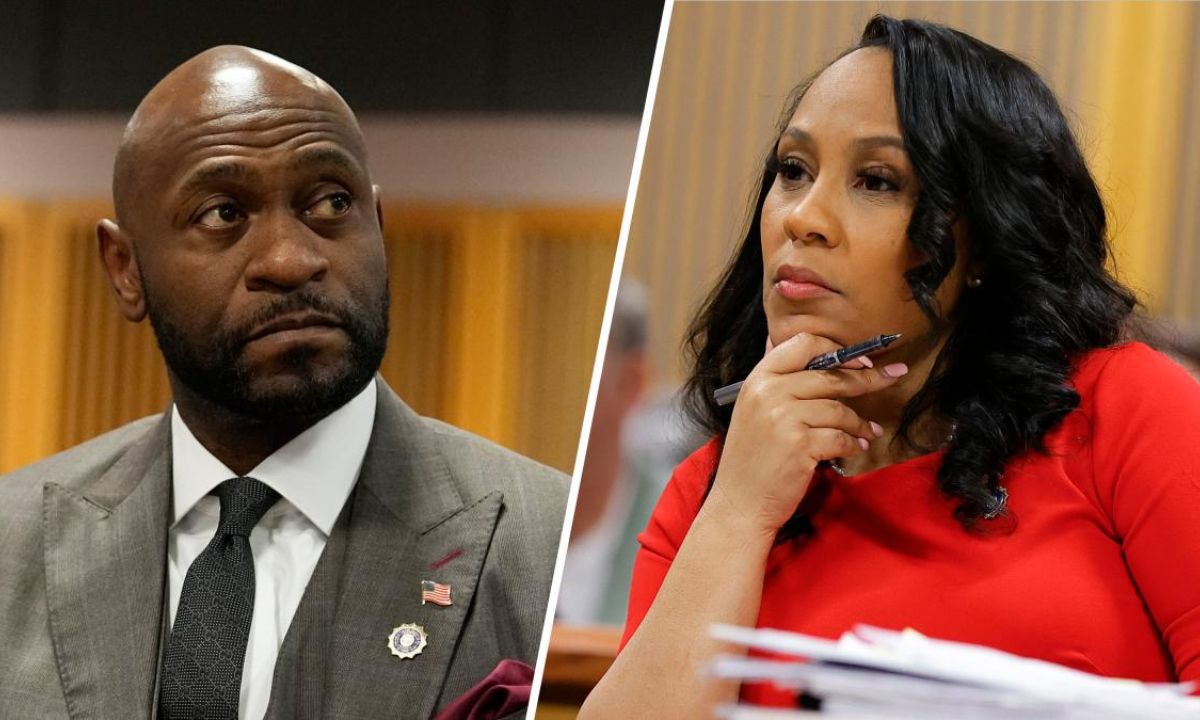The legal proceedings against former President Donald Trump in Georgia took a dramatic turn as Nathan Wade, a special prosecutor, announced his resignation amidst a legal conundrum involving his romantic relationship with Fulton County District Attorney Fani Willis.
This development follows a judicial decree by Fulton County Superior Court Judge Scott McAfee, which posited that Wade’s continuance in the case would necessitate Willis’s withdrawal from pursuing charges against Trump.
The case against Trump, which alleges interference in the Georgia election results, has been marked by a blend of political and personal intrigue.
Wade’s decision to step down was conveyed through a formal letter to Willis, highlighting his commitment to democracy and the expedient advancement of the case.
This move is intended to preserve Willis’s leadership in what is considered the most intricate of the quartet of criminal cases facing Trump, who is currently positioned as the likely Republican candidate for the 2024 presidential race.
The intricacies of this legal battle are deepened by the backdrop of Trump’s rigorous critique and the subsequent public scrutiny of Willis and Wade’s professional and personal interactions.
The duo had pledged to pursue accountability against Trump but found themselves under intense examination due to their dynamics.
Acknowledging Wade’s resignation, Willis praised his professional conduct and resilience in the face of personal and public challenges.
She noted his brave initiative in tackling the investigation and prosecution related to the alleged conspiracy to overturn Georgia’s 2020 Presidential Election results.
Contrastingly, Trump’s legal representation voiced respect for the court’s decision while critiquing the judge’s handling of the alleged prosecutorial misconduct by Willis and Wade. They signal an intent to exhaust all legal avenues to challenge the case’s foundation.
The resignation unfolded shortly after Judge McAfee mandated Wade’s removal or Willis’s recusal, citing the “appearance of impropriety” brought about by their relationship.
This situation has raised questions about the influence of personal relationships on judicial processes, particularly in high-profile cases where public trust and legal ethics are paramount.
The case against Trump, leveraging a statute typically used against organized crime, accuses him and his associates of a concerted effort to maintain power after the 2020 election. Trump and his legal team have denied any wrongdoing, framing the charges as politically motivated.
The saga surrounding Willis and Wade’s relationship, coupled with the legal challenges against Trump, reflects the complex interplay of personal relationships within the judicial system.
Despite assertions of maintaining professional standards, the revelation of their past relationship has ignited discussions on potential biases and the integrity of the prosecutorial effort.
As this legal drama continues to unfold, the focus remains on navigating the legal and ethical dilemmas presented by the intersection of personal connections and professional duties in the pursuit of justice.
The case’s progression will undoubtedly be observed closely, as it not only concerns the allegations against a former president but also the broader implications for legal ethics and the integrity of the judicial process in high-stakes political litigation.

